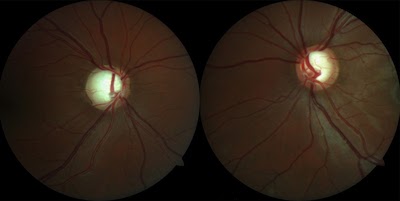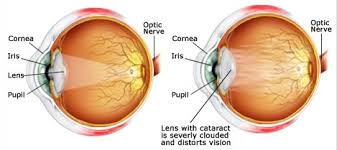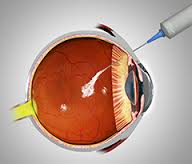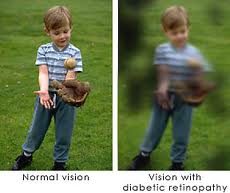Early Detection Critical to Treating Glaucoma

Glaucoma is a major cause of vision loss worldwide. It affects more than 3 million people in the United States with nearly half being unaware they have the disease. During Glaucoma Awareness Month in January, the American Academy of Ophthalmology is reminding the public that early detection and treatment can help protect your sight. Glaucoma damages the… Read More
Optic Nerves Identify Glaucoma

Photo of optic nerve discs with glaucoma. The brighter white in the center of the disc is the “cupping” of the disc that physicians measure to determine if there is any change over time. In glaucoma, this area can become larger and deeper, resulting in nerve fiber loss, which permanently reduces peripheral vision. If you… Read More
LASIK Patient Story from Eyecare Medical Group
Chris C Shared his LASIK experience at Eyecare Medical Group… “I am so happy with the service I received at EMG. Other doctors’ offices will say if you have any questions to call, but it usually sounds textbook and inauthentic. When Dr. Sise and the staff said it felt genuine and full of true concern…. Read More
What Do You See During Cataract Surgery?

We always like to take the time to carefully explain all of the things patients having cataract surgery and lens implants might experience during their visit to the surgery center and even during their cataract surgery procedure. In this way we are hopefully helping them relax and have an easy and comfortable experience as we… Read More
Injections Vs. Laser Treatment for Diabetic Retinopathy

Injections for Advanced Diabetic Retinopathy Diabetic retinopathy progresses in stages that reflect the severity of the disease. Proliferative diabetic retinopathy is a more advanced stage and requires treatment. Therapeutic injections for proliferative diabetic retinopathy represent a sound treatment for some patients with this advanced stage of diabetic retinopathy where blood vessels in the retina begin… Read More
Diabetic Retinopathy and Neuropathy

We have known for quite some time that with both Type 1 & Type 2 Diabetes Mellitus are at high risk for developing diabetic retinopathy, which is the most common cause of irreversible blindness in adults. Vision loss occurs because of microvascular damage to the retina. People with diabetes are typically not aware that they are… Read More





